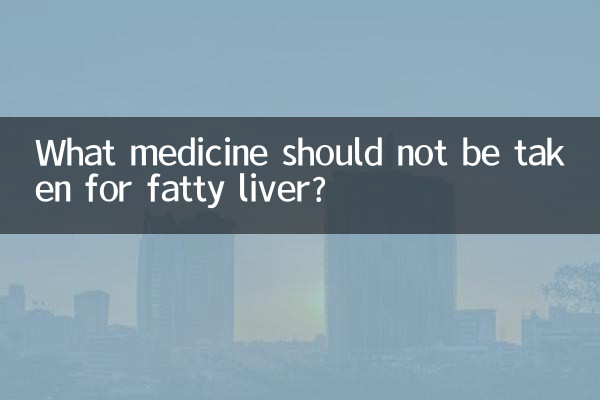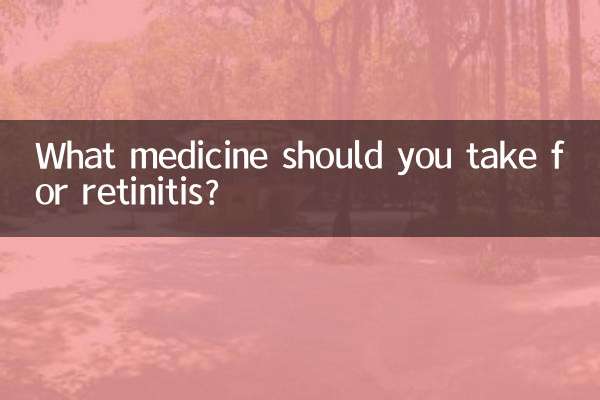What medicine should not be taken for fatty liver?
In recent years, the incidence of fatty liver has increased year by year, becoming one of the important diseases threatening public health. During the treatment process, patients with fatty liver disease need to pay special attention to drug selection in addition to adjusting their diet and lifestyle. Certain drugs may increase the burden on the liver and even cause liver damage. This article will combine the hot topics and hot content on the Internet in the past 10 days to sort out the drugs that patients with fatty liver should avoid and provide structured data reference.
1. Drugs that patients with fatty liver should use with caution

Patients with fatty liver disease have weaker liver metabolism, and certain drugs may further damage liver function. The following are drug categories that patients with fatty liver disease should use with caution:
| drug class | Representative medicine | Potential risks |
|---|---|---|
| Nonsteroidal anti-inflammatory drugs (NSAIDs) | ibuprofen, aspirin | May cause elevated liver enzymes and aggravate liver inflammation |
| Statin lipid-lowering drugs | Atorvastatin, simvastatin | May cause liver enzyme abnormalities, requiring regular monitoring of liver function |
| antibiotic | Tetracycline, erythromycin | Some antibiotics may cause drug-induced liver injury |
| antituberculosis drugs | Isoniazid, rifampicin | Strong liver toxicity, patients with fatty liver should use with caution |
| Hormone drugs | Glucocorticoids | May aggravate fatty liver disease |
2. Medication precautions for patients with fatty liver
1.Avoid self-medication: Patients with fatty liver should take medication under the guidance of a doctor and avoid buying and using drugs that may damage the liver.
2.Monitor liver function regularly: When taking drugs that may affect the liver, liver function needs to be checked regularly to detect abnormalities in time.
3.Pay attention to drug interactions: When multiple drugs are used together, they may interact and increase the burden on the liver.
4.Use Chinese medicine and health products with caution: Some traditional Chinese medicines and health products may also contain hepatotoxic ingredients, so choose carefully.
3. Dietary recommendations for patients with fatty liver
In addition to avoiding the above-mentioned drugs, patients with fatty liver disease should also pay attention to dietary conditioning. Here are some dietary suggestions:
| Recommended food | restrict food | avoid food |
|---|---|---|
| vegetables, fruits | red meat | Fried food |
| whole grains | refined sugar | Alcohol |
| low fat dairy products | processed food | sugary drinks |
| fish | High salt food | trans fat |
4. Treatment and prevention of fatty liver
Treatment of fatty liver disease requires comprehensive management, including medication, lifestyle intervention, and regular monitoring. Here are some key points:
1.control weight: Obesity is an important cause of fatty liver. Controlling your weight through healthy diet and exercise can help improve the condition.
2.increase exercise: Do at least 150 minutes of moderate-intensity exercise every week, such as brisk walking, swimming, etc.
3.Managing chronic conditions: Control chronic diseases such as diabetes and hypertension and reduce damage to the liver.
4.Regular physical examination: Patients with fatty liver should undergo liver ultrasound and liver function tests regularly to understand changes in their condition in a timely manner.
Conclusion
Fatty liver is a preventable and treatable disease. The key lies in early detection and scientific management. Patients need to be extra cautious when taking medications and avoid drugs that may damage the liver. At the same time, through a healthy lifestyle and reasonable diet, the condition of fatty liver can be effectively improved. I hope this article can provide you with valuable reference to help you better protect your liver health.

check the details

check the details